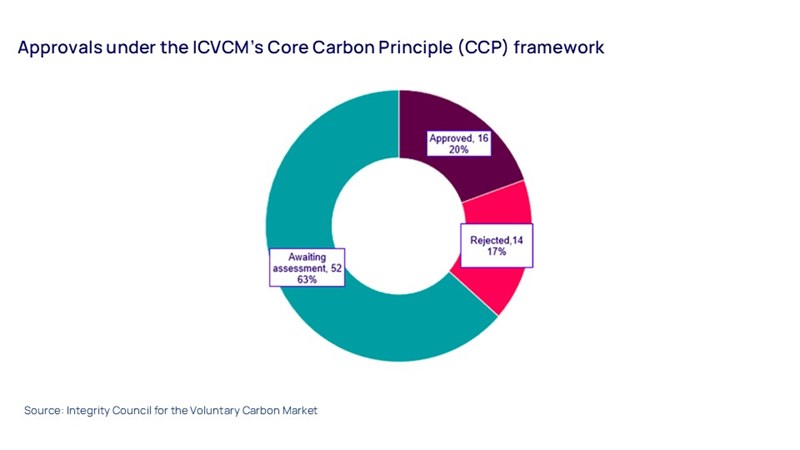4 key carbon policy developments from Q1 2025
What are the major themes globally for emissions trading and offsetting?
2 minute read
Nuomin Han
Principal Analyst, Head of Carbon Markets

Nuomin Han
Principal Analyst, Head of Carbon Markets
Nuomin provides clients with insights into emissions and climate-related development.
Latest articles by Nuomin
-
Opinion
Forecasting carbon offset use to 2050: what you need to know
-
Opinion
4 key carbon policy developments from Q1 2025
-
Featured
Carbon markets 2025 outlook
-
The Edge
COP29 key takeaways
-
Opinion
Can CCUS momentum overcome headwinds to the industry?
-
Opinion
5 things you need to know about carbon offsets in 2024
Stephen Vogado
Senior Analyst, Carbon Policy

Stephen Vogado
Senior Analyst, Carbon Policy
Stephen focuses on carbon policy, taking a data-driven approach to help clients navigate the energy transition.
Latest articles by Stephen
-
Opinion
4 key carbon policy developments from Q1 2025
-
Featured
Carbon policy 2025 outlook
-
The Edge
COP29 key takeaways
-
Opinion
Stepping on the gas: the state of global methane policies and regulations
-
Opinion
Climate transition plans: time for companies to take action
-
Opinion
New rules and frameworks in global carbon policies
As pressure mounts to get the world back on track to hit the Paris Agreement’s 1.5oC global warming target, governments across the globe are increasingly employing policy to drive the necessary change through emissions trading and offsetting. So, what do stakeholders need to be aware of from Q1 2025?
Our recently published Carbon policy in brief report rounds up the key developments in regulations and certification from across the globe. Fill out the form to access a series of key insights from the report, or read on to get the lowdown on a hot topic that will have an impact on carbon offsetting at a global level.
Three carbon offset cookstove methodologies gain coveted CCP approval
Three clean cookstove methodologies and one household biodigester methodology have been provisionally approved by the Integrity Council for the Voluntary Carbon Market (ICVCM) under its Core Carbon Principle (CCP) framework – subject to certain additional conditions. The international governance body has now approved 16 methodologies in total, with 14 rejected and 52 still awaiting assessment.
Additional conditions required by the ICVCM include stricter testing and calculations for specific aspects, such as the fraction of non-renewable biomass applied and baseline testing for fuel consumption. The decision affects almost two-thirds of historical offset issuance for the cookstove sector, and means no previously issued offsets under these methodologies can qualify for the CCP label.
This is the ICVCM’s first conditional decision, indicating a desire to maintain a role for cookstove offset projects in recognition of their significant potential contribution to the energy transition. For existing projects, both continuing as normal and transitioning to align with the CCP guidelines presents risks: upfront alignment costs are quantifiable but transitioning may also significantly reduce offset generation and hit revenue; meanwhile on the flip side, unapproved offsets may see reduced demand and/or lower prices.
Given the ICVCM’s status and the ongoing push for offset quality from buyers, we expect many project developers to pursue the CCP-label. However, in the short term, offset buyers will need to look to other sectors to compensate for a severely limited supply of CCP-approved cookstove offsets.
Get more insight
Fill out the form to download the complimentary insight, which covers:
- China’s expanded emissions trading system and restarted domestic offset scheme
- Planned EU exemptions of embedded emissions
- Implications of the US withdrawal from the Paris Agreement








